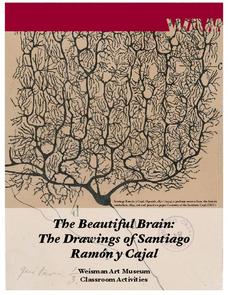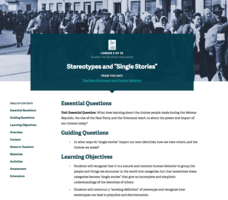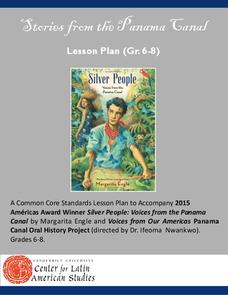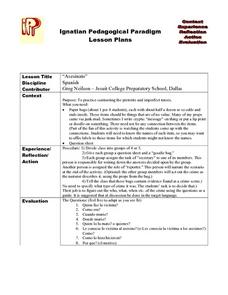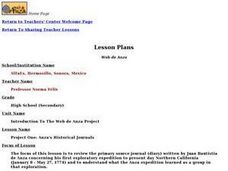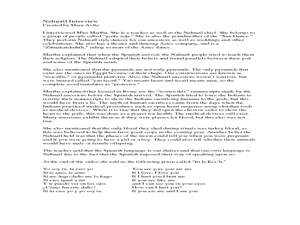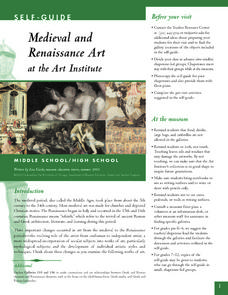University of Minnesota
Beautiful Brain: Do You See What I See?
Can art play tricks on your eyes, and can a still painting really appear to vibrate? The second lesson plan in a four-part series discusses the way our beautiful brains translate visual images. It highlights the style of optical art and...
University of Minnesota
Beautiful Brain: Step Inside the Brain
Before digital microscopes, scientists hired artists to draw the things visible in the microscope. Through training in neuroscience and art, Cajal revolutionized the way we view the beautiful brain. The third lesson in a series of four...
University of Minnesota
Beautiful Brain: Brain Inspiration
"Neuroscientists consider Cajal as important to their discipline as Einstein is to physics." The first of four lessons has scholars view Santiago Ramon y Cajal's drawings of neurons. They reflect and respond to the art through writing...
University of Minnesota
Beautiful Brain: Strangest Dream
Do words change or add meaning or interest to a work of art? The final lesson in a four-part series on the beautiful brain as a work of art focuses on art analysis. Scholars write a story about exploring art from the inside. Reflections...
Facing History and Ourselves
Stereotypes and “Single Stories”
Help bring subconscious stereotypes to the surface to stop it in its tracks. Pupils first read an excerpt describing the experience of prejudice and analyze how this process connects to World War II. Then, they write a creative story...
The Alamo
The Alamo
Remember the Alamo! Scholars investigate the Battle of San Jacinto during the Texas Revolution. Using models, maps, quotes, biographies, and the Oath of Allegiance, the Alamo comes to life as the stories of those who fought and died in...
Vanderbilt University
Stories from the Panama Canal
The stories of the Silver People, the West Indies immigrants hired to work on the Panama Canal, come to life in a lesson about the building of the Panama Canal. Groups research why the canal was built, how it was build, the working...
Federal Judicial Center
Amistad and Dred Scott—a Comparative Activity
What do slaves fighting for their freedom on board a ship and a slave fighting for his freedom in a courtroom have in common? Budding historians investigate the two different cases of the Amistad slave revolt and the Dred Scott argument....
Stanford University
Explosion of the Maine
An intriguing lesson features newspaper articles to help academics understand the political impact of the sinking the Maine and how the American media depicted the event. Scholars also view a presentation, participate in group...
Curated OER
La Lengua de las Jarchas
Students discover the non-Arabic language used in the composition of the jarchas.
Curated OER
Diego Rivera
Students participate in activities in which they gather information on Diego Rivera. Using the internet, they examine and discuss his famous murals. They read an article on his life, circle words they do not know and complete worksheet...
Curated OER
Venta Y Comprea De Vehculos
Students examine and read advertisements related to cars. Using the ads, they recognize prices, telephone numbers, content and the target audience of the ad. They create their own advertisement using appropriate vocabulary and share them...
Curated OER
Jorge Luis Borges and His Life
Young scholars use the internet to research the life of Jorge Luis Borges. Individually, they complete a worksheet noting the important facts from his life and the books he published. They identify words they do not know the meaning...
Curated OER
Anza's Historical Journals
Students review the journal of Juan Bautista de Anza. They reflect on his first exploratory expedition into present-day California.
Curated OER
Writing A Storybook
Students create a storybook using vocabulary from the topic "urban and rural life". They write about past events in a children's story. They present their story to the class at an author's tea.
Curated OER
Firestorms: The Bombing of Civilians in World War II: War, Ethics, Guernica, Precision Bombing
Students explore the history, rationale and ethics of civilian bombing in times of war. They consider war strategy, the laws and conventions of war and international implications.
Curated OER
Fun Along the Way: Technology and the Teaching of World Languages
Learners record themselves saying basic biographical facts about themselves: : what their names are, where they live, how old they are, what languages they speak, and what activities they like to do. They practice their presentational...
Curated OER
Maggie's Adventures Grades 1-2
Students use Maggie's Learning Adventures online activity. They play a matching or memory game to become aware of homophones. Students recognize that there two ways to use many words. They practice with noun or verb identification by...
Curated OER
Nahuatl Culture
Students read stories, look at maps, and write journal entries to learn about the language and artwork of Nahuatl culture. In this Nahuatl culture lesson plan, students research the Nahuatl culture and present their findings.
Curated OER
Firestorms: The Bombing of Civilians in World War II
Students examine the implication of civilian targets in war. In this World War II lesson, students investigate the history of bombing practices in war. Students zero in on World War II bombing practices as they discuss precision and area...
Curated OER
Central America and the Caribbean
Use the library or Internet to find resources on a chosen topic. The class will comprehend the collected information, structure the information with texts and graphics for a presentation. Each presentation focuses on Hispanic culture and...
Curated OER
Jamestown in Context: The Colonization of North America
Students analyze the significance of Jamestown in the broader picture of colonization and analyze a historical document to determine the effects of previous explorations on the expectations of the Jamestown colonizers
Curated OER
Medieval and Renaissance Art at the Art Institute
Students examine several Medieval and Renaissance works of art, including painting and sculpture, at the Art Institute of Chicago. They use worksheets and discussion questions to enhance their interpretation of the pieces.
Other popular searches
- Spanish Grammar Worksheets
- Spanish Lesson Plans
- Spanish Christmas Activities
- Spanish Language
- Spanish Colors
- Spanish Explorers
- Spanish Literature
- Spanish Weather Activities
- Spanish Culture
- Spanish Speaking Countries
- Spanish Body
- Spanish American War





